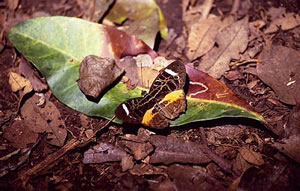 Locals refer to the Kitulo Plateau as Bustani ya Mungu – The Garden of God – while botanists have dubbed it the Serengeti of Flowers, host to ‘one of the great floral spectacles of the world’. And Tanzania’s newest national park is indeed a rare botanical marvel, home to a full 350 species of vascular plants, including 45 varieties of terrestrial orchid, which erupt into a riotous wildflower display of breathtaking scale and diversity during the main rainy season of late November to April.
Locals refer to the Kitulo Plateau as Bustani ya Mungu – The Garden of God – while botanists have dubbed it the Serengeti of Flowers, host to ‘one of the great floral spectacles of the world’. And Tanzania’s newest national park is indeed a rare botanical marvel, home to a full 350 species of vascular plants, including 45 varieties of terrestrial orchid, which erupt into a riotous wildflower display of breathtaking scale and diversity during the main rainy season of late November to April.
Park size: 442 sq km (172 sq miles)
Perched at around 2,600 metres (8,500 ft) between the rugged peaks of the Kipengere, Poroto and Livingstone Mountains, the well-watered volcanic soils of Kitulo support the largest and most important montane grassland community in Tanzania. One of the most important watersheds for the Great Ruaha River, Kitulo is also the first national park in tropical Africa to be gazetted largely for its floral significance – not only a multitude of orchids, but also the stunning yellow-orange red-hot poker and a variety of aloes, proteas, geraniums, giant lobelias, lilies and aster daisies, of which more than 30 species are endemic to southern Tanzania.
Big game is sparsely represented, though a few hardy mountain reedbuck and eland still roam the open grassland. But Kitulo – a botanist and hiker’s paradise – is also highly alluring to birdwatchers. Tanzania’s only population of the rare Denham’s bustard is resident, alongside a breeding colony of the endangered blue swallow and such range-restricted species as mountain marsh widow, Njombe cisticola and Kipengere seedeater. Endemic species of butterfly, chameleon, lizard and frog further enhance the biological wealth of God’s Garden.

